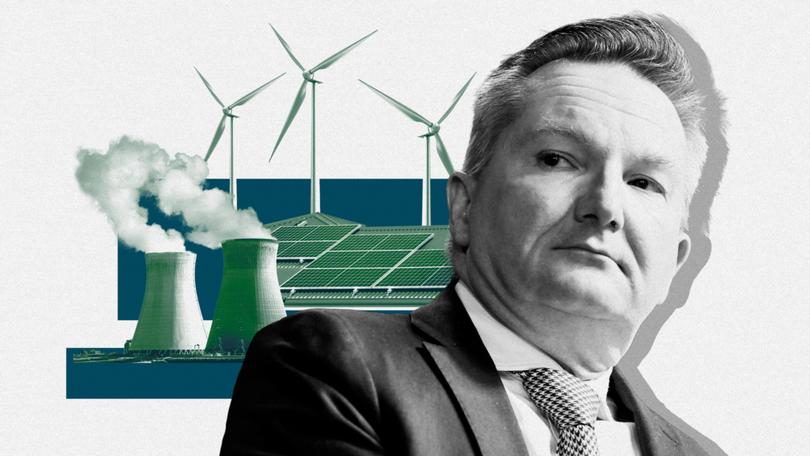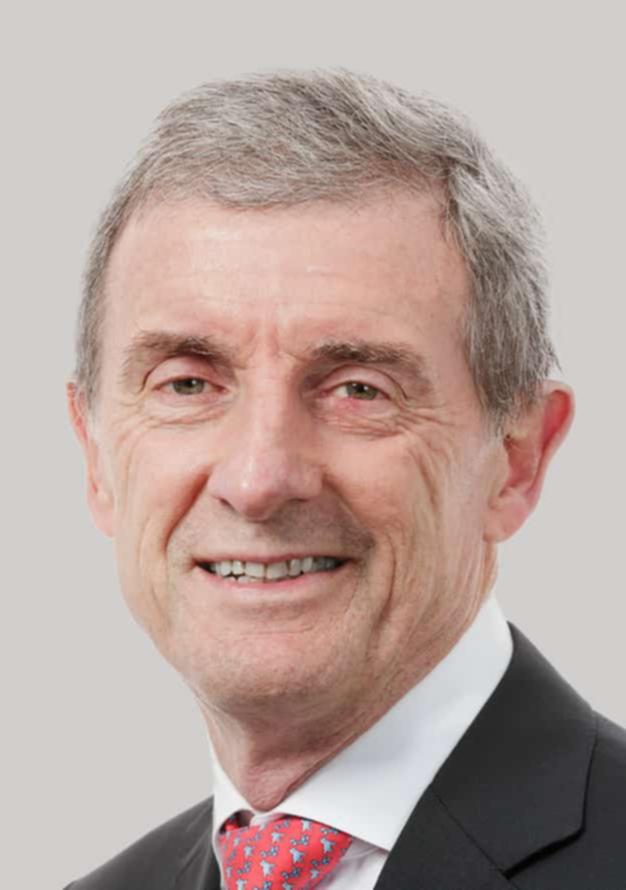Labor expected to use new majority to power ahead with ambitious 2030 renewable energy goal
Labor is expected to use its thumping new majority to plough ahead with its 2030 clean energy transformation.

Labor is expected to use its thumping new majority to plough ahead with an ambitious clean energy transformation, boosted by the Greens’ sway in the Senate.
The Government’s new mandate and surge of 94 MPs overshadowing the Opposition’s 44 will turbocharge its ambitious target of powering 82 per cent of the electricity grid with renewables by 2030.
But after being sworn in this week for a second term, one of the most pressing tasks facing Climate Change and Energy Minister Chris Bowen, pictured, is to reset a separate 2030 pledge to cut emissions by 43 per cent to a new 2035 deadline.
Sign up to The Nightly's newsletters.
Get the first look at the digital newspaper, curated daily stories and breaking headlines delivered to your inbox.
By continuing you agree to our Terms and Privacy Policy.The Greens, now led by new leader Larissa Waters, may use their deciding vote in the Senate to attempt to push for a more substantive commitment to set Australia on the path to a global net zero carbon emissions goal by 2050.

Last week South Australian Greens Senator Sarah Hanson-Young said the party’s hold on the balance of power in the Upper House to push for “things that people have really called for,” citing progressive reforms on climate and the environment as well as an urgent housing policy.
Mr Bowen is already playing catch up on an overdue deadline on emissions targets that required the submission of a fresh climate plan to the United Nations by February 10.
Australia was among 190 signatories of the Paris climate accord to fail to provide a timely submission with a steeper headline target to slash emissions and a detailed blueprint on how to do so.
But having deferred the delicate decision, which will require a tricky balance between the environmental lobby and business interests, the Government must quickly finalise a plan to not only stay on track for 2050 but also remain a credible contender to co-host a future UN Climate Change Conference, or COP, with Pacific Island nations.
Mr Bowen this week recommitted to Australia’s bid to host COP31 in 2026, calling it a “significant opportunity” to “help the rest of the world understand the decarbonisation journey for a country that’s traditionally been a large supplier of fossil fuels” and “to help the Pacific elevate their story.”
To win this prize, he must first submit Australia’s updated Nationally Determined Contributions, including 2035 targets, within months.
Just a few days into his second term, Mr Bowen deferred to pending advice from the Climate Change Authority, which would need to be worked through cabinet processes, before reaching a conclusion.
“Most countries haven’t released their 2035 target yet,” he said but confirmed Labor’s position would be revealed “well and truly before COP30” in November.
Rebecca Mikula-Wright, the CEO of the Investor Group on Climate Change welcomed the continuity of Labor’s progressive agenda, urging the Greens to temper ambition with pragmatic reality.
First out of the gate, investors wanted to see a strong 2035 emissions reductions target that would “set the direction of travel” for industry, she said.
“This will be a target within the range advised by the Climate Change Authority, and this will ultimately give investors the confidence they need to continue and to increase their investments in renewable energy and other climate solutions in Australia,” she said.
The target, followed by comprehensive “sector by sector” plans to ensure an equitable transition, clarity and stability would also encourage international investors, she added.
Andrew McKellar, CEO of the Australian Chamber of Industry and Commerce, said while business supported the 2050 and 2030 goals, a clear pathway to get there, and to the new 2035 standard, would help provide certainty.
“An ambitious target is going to have costs attached to it, because key sectors, big emitters, they are going to have to continue to implement strategies to either offset or reduce emissions,” he said.
“That comes with a cost, so it’s got to be wearable. The more we can see the renewable energy generation capacity being rolled out in a predictable or in a planned way and at affordable costs, that’s important.”
Mr McKellar called for “significant acceleration of progress” to hit the 43 per cent reduction target by 2030, adding that the “jury is still out,” if would be achieved.

Tony Wood, Energy and Climate Change Program Director at the Grattan Institute agreed that targets needed to be backed by the right policies to reach them.
“It’s like playing darts at the pub. Having a target’s fine, but you’ve got to have the darts,” he said.
“If we’re going to commit to net zero, what’s the plan to get us there?” he said, adding that the Government had a “big challenge” to grapple with the needs of a patchwork of vastly different sectors from electricity to vehicles, heavy industries and agriculture.
Mr Wood did not believe the Government would use its increased majority to ramp up its ambitions.
“Both the Prime Minister and the Treasurer were very clear that they’re not going to surprise the electorate with things that they didn’t take to the last election,” he said.
“They don’t need any more ambition. There’s plenty of ambition. The focus should be on delivering the ambition they’ve already got.”
The Greens now had the opportunity to compel the Government to go further on climate policies but had to proceed in a more constructive way, he said.
“The Government will still need them, and so there will be some opportunities to negotiate better outcomes, but the problem they had last time was they got too excited and overreached, and then, at the end of the day, they got not very much at all.
The Coalition also faces its own challenges as the Nationals and Liberals now spar post-election over the future of net zero and their nuclear policy ambitions.
Bridget McKenzie, Leader of the Nationals in the Senate, said her party’s continued support for nuclear power facilities showed “our deep commitment to keeping jobs on shore and our industrial base,” as well as a long-term commitment to addressing environmental concerns.
“Under a Labor Government I am concerned that there will be no public discussion about who pays the social and economic cost of emission reduction targets,” she said.
“The reality is that regional Australia will always bear the bulk of that cost, economically, socially and environmentally.”

